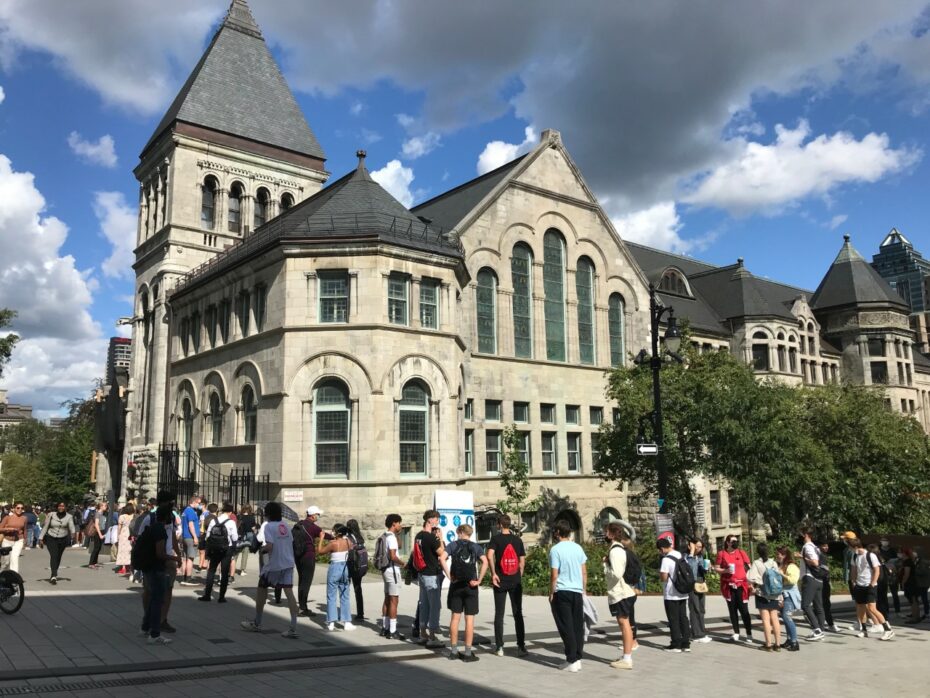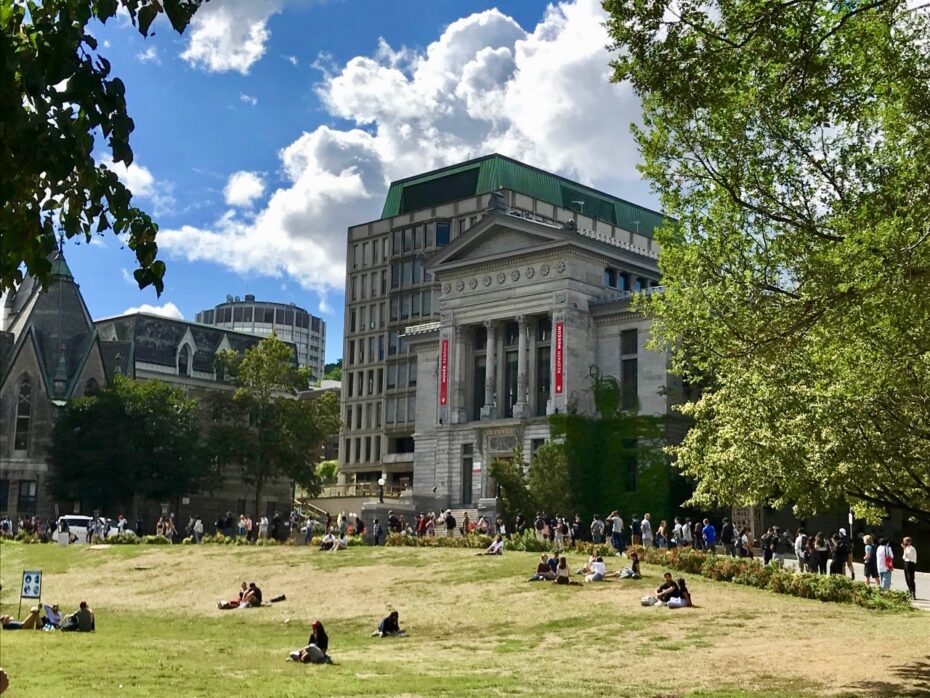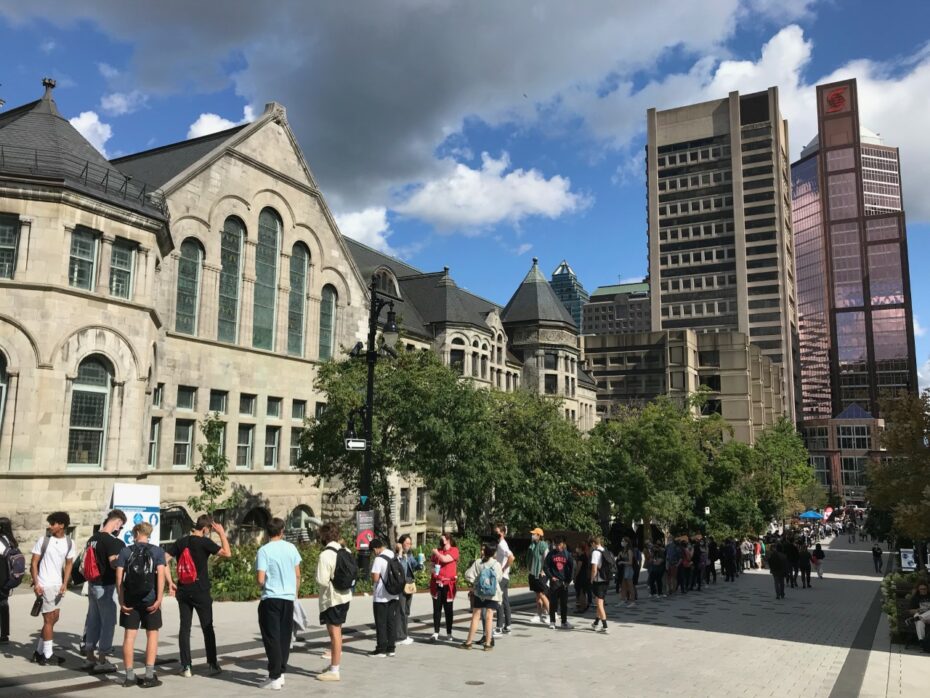
On September 3, two lines of people – mostly McGill students – stretched from Redpath Hall. One worked its way across campus and the other snaked down McTavish. People waited patiently to get vaccinated against COVID-19 at the walk-in clinic hosted by McGill.
In an increasingly fast-paced world not geared toward waiting, the length of the lines spoke volumes about people’s commitment to protecting themselves and the community against COVID-19. In all, 111 McGill students and three employees received their jabs. Pop-up clinics of this size average 100 vaccinations per day.
At the clinic, some students were also able to register vaccinations they received out of province.
Vaccination is the key
The clinic was part of McGill’s ongoing efforts to ensure the safety of the University community.

From the very outset of the COVID-19 pandemic in early 2020, McGill has worked closely with public health officials to adopt policies and put into practice measures to protect students, staff and faculty.
With the return to campus for the fall semester, vaccinations are a critical part of that strategy.
“The University expects you to get fully vaccinated as soon as possible,” reads McGill’s Get vaccinated! page. A virtual vaccination primer, the page outlines everything from how to book a vaccination appointment, to how to register any doses received outside of Quebec.
The vaccination is free and is open to everyone (including international students) with photo identification and a RAMQ card or health information from outside of Quebec. People can now book their second dose only four weeks after their first.
People are reminded that there are a number of walk-in clinics set up for the first and the second dose depending on vaccine availability. They can also book vaccination times on the Clic Santé website.
Vast majority of McGill community fully vaccinated
The push to vaccinate is paying dividends. According to the latest numbers from the Ministère de la Santé et des Services Sociaux and the Ministère de l’Enseignement supérieur, 89 per cent of Quebec university students have received their first dose, and more than 85 per cent of the McGill community is fully vaccinated.
This is much higher than the overall vaccination rate of 68 per cent for the 18-29 age group across the province.
Still, as committed as our community has been to protecting each other, we must continue to push our vaccination numbers even higher. As Principal Fortier wrote in her Fall welcome message to the community, “We can do better and therefore, if you have not done so already, I urge you to get vaccinated.”
Vaccine passports
As of September 1, 2021, the vaccine passport, which requires proof of vaccination to allow fully vaccinated individuals to access non-essential services, is in effect. The vaccination passport is a requirement from the Government of Quebec, and McGill is implementing the passport for non-essential activities on campus. The Vaccine Passports and McGill page has the latest information about:
- Activities requiring a passport
- Activities not requiring a passport
- Getting a vaccine passport
- Presenting a vaccine passport
- Verifying a vaccine passport
The University is working with public health authorities to explore options for future vaccination clinics.


Great to see students’ response! Vaccination is the best way to get back to a more normal life. Hope to see other clinics offered on or near campus.
This article purposely excludes any negative aspects of the event, and thus lies by omission in the interest of McGill’s image. Anyone who was there will tell you that the clinic organizers lacked organization, made us wait for hours and refused 98% of people who showed up. For example, when Neale says “111 students and staff” received jabs, he casually forgets to mention the hundreds who were not able to get the jab. Considering that the event ran for 6 hours, the clinic only vaccinated 17 people per hour average… this number is so small compared to the number of… Read more »
Kari, Pop-up clinics like these, organized in collaboration with public health authorities, average 100 vaccinations per day. Yes, very clearly the number of students that showed up that day exceeded capacity. However, many other walk-in clinics are offered to the community all across Montreal. There are many options possible for students wanting to get vaccinated – check out this page for a list of clinics: https://www.mcgill.ca/coronavirus/health-safety/get-vaccinated
Pierre, I think your response to Kari begs the question: if the organizers knew that capacity could not meet the demand, why were students not directed to, for example, the Palais des congrès, where there are ample resources, or better yet, offered shuttle service to get there?
I think David the overwhelming response was unexpected… Nothing organizers and public health staff could predict in my view. But I know they did their very best to jab as many people as possible that day.